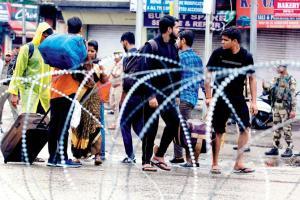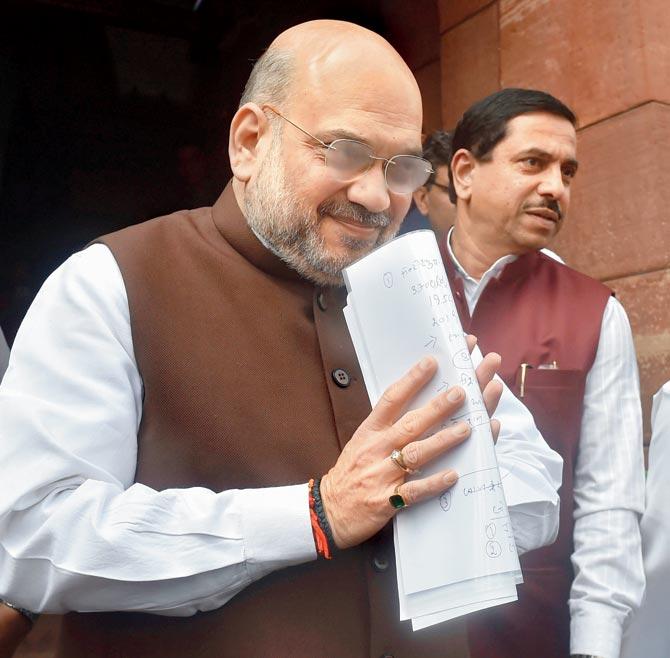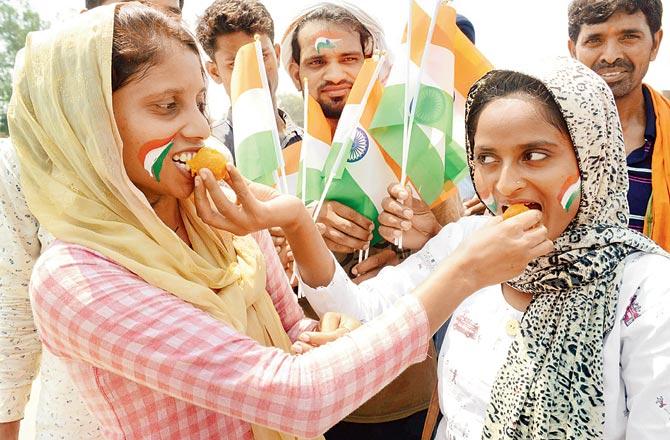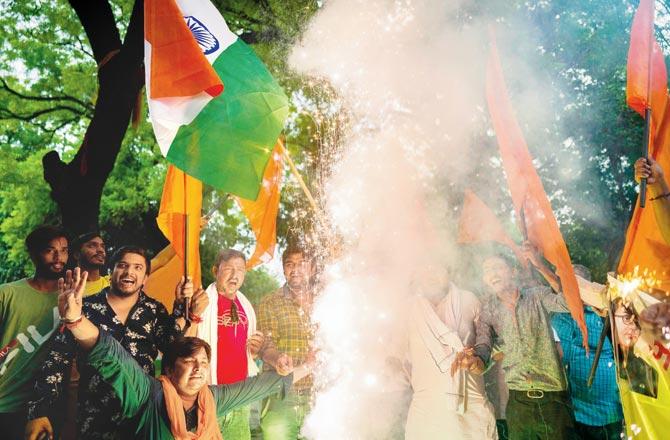Under the shadow of a blackout and barbed wire in the Valley, Home Minister Amit Shah tells Parliament that J&K's special status will go, and that the region will be divided into two Union Territories

New Delhi: It all started with the deployment of 100 companies of paramilitary forces in the Valley towards the end of July. Days later, the Amarnath Yatra was cancelled and all outsiders were asked to leave Kashmir. On Sunday night, mainstream political leaders were put under house arrest and internet and mobile communications were shut down and common people were forced indoors.While all along the speculation was along the military lines, the government confirmed on Monday morning that the motive was always political, moving to revoke Article 370, which gave special status to J&K, and proposed that the state be bifurcated into two Union Territories — J&K and Ladakh.
Home Minister Amit Shah announced the decision in Rajya Sabha, fulfilling BJP's poll promise. While it sent a wave of jubilation among supporters, it provoked outrage from the NC and the PDP, J&K's principal parties. The decision to take away the state's special status and treat it like any other is aimed at ending the decades-old separatist movement. As Shah moved the resolution in Rajya Sabha, there were also fears that the decisions would change the state's demographic profile. PDP chief Mehbooba Mufti articulated her apprehensions in a tweet.

Amit Shah
"They want to change the demography of the only Muslim majority state in India, disempower Muslims to the extent where they become second class citizens," she said. As per the resolution, Article 370 ceases to be operative from Monday itself.
2002
The year the Jammu and Kashmir High Court struck down the provision of women losing their permanent resident status if they married a non-permanent resident. Their children still cannot have succession rights

Women celebrate with sweets near the India-Pakistan Wagah Border about 35 km from Amritsar, on Monday. Pics/AFP
What does special status mean?
Article 370 had temporary provisions with respect to the State of J&K, allowing it to have its own Constitution and flag. Provisions of only Article 1 and Article 370 applied to J&K.
President Ram Nath Kovind in 'concurrence' with the Jammu and Kashmir government – which under the current circumstances merely means the Governor of the state, since there is no assembly and it is under President's Rule – promulgated the Constitution (Applications to Jammu and Kashmir) Order, 2019 on Monday. This says that provisions of the Indian Constitution are applicable in the state. It comes into force 'at once' and shall 'supersede the Constitution (Applications to Jammu and Kashmir) Order, 1954', which had given Kashmir special status and separate flag.

Activists and supporters of Hindu Sena, a right wing group, celebrate after Article 370 of the Constitution was abolished
What is Article 35A?
- This article stemmed out of Article 370, giving powers to the J&K Assembly to define permanent residents of the state, their special rights and privileges.
- On November 17, 1956, the J&K Constitution defined a permanent resident as a person who was a state subject as of May 14, 1954, or has been a resident in the state for 10 years on that date with a legally acquired property.
- The unique Article was inserted in the Constitution through a Presidential order instead of an Amendment moved through Parliament. This Article is under challenge in the Supreme Court as it was not added through a Constitutional amendment and over other related issues.
What was the other bill that was passed?
- The J&K Reorganisation Bill, which makes Ladakh a Union Territory without a legislature, and J&K a Union Territory with a legislature. The J&K assembly will have 107 seats, to be increased to 114 after delimitation. The UT of Ladakh will have two districts – Kargil and Leh.
- The region will send six MPs to Lok Sabha, five J&K and one from Ladakh
What are the current residency rules?
Non-permanent residents cannot acquire immovable property, get government employment, scholarships or other aid provided by the state government. Restrictions on non-permanent residents to purchase lands are not unique to J&K as Himachal Pradesh and several North Eastern states too have this provision.
Catch up on all the latest Crime, National, International and Hatke news here. Also download the new mid-day Android and iOS apps to get latest updates
 Subscribe today by clicking the link and stay updated with the latest news!" Click here!
Subscribe today by clicking the link and stay updated with the latest news!" Click here!







